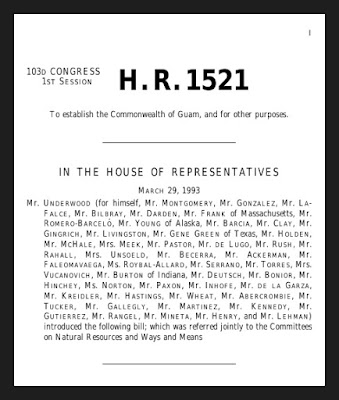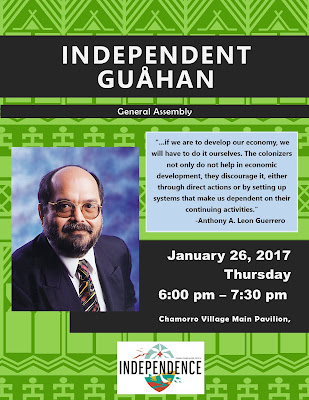Mensåhi Ginen i Gehilo' #26: Kao pau hånao ha' si Uncle Sam?

"Kao pau hånao ha' si Uncle Sam, anggen manindipendente hit?" Fihu hiningok-hu este na chathinasso ginen i kumunidåt. Anggen mamindipendente hit, u fanmalingu siempre todu i kosas motdeno. U hånao ha’ si Uncle Sam, pau dingu hit ya pau laknos yan bo’ok todu i chinile’-ña mågi. Ti magåhet este. Fihu ti ya-ña i Estådos Unidos umatmitde este, lao guaha obligasion-ña nu hita. Put i ha fitma i charter para i Unidos Nasiones, ha aksepta i responsibilidåt, este mafa’na’an “inanggokko sagrådu” a sacred trust. Na para u ga’chungi hit gi este na chålan mo’na. Guaha meggai na klasen ayudu na ha oblibliga muna’guaha, lao para este na kuestion, uno mås propiu para ta diskuti, i tiempon “transition.” Este na klasen kontråtan, fihu masusedi gi taiguini na klasen tinilaikan pulitikåt gi otro na tåno’ lokkue’. Siña este na tiempon tinilaika tinaka’ uno año, tres años, dies años, pat bente pat trenta años. I inapmåm-ña ha dipepende gi håfa diniside ni’ dos na n



